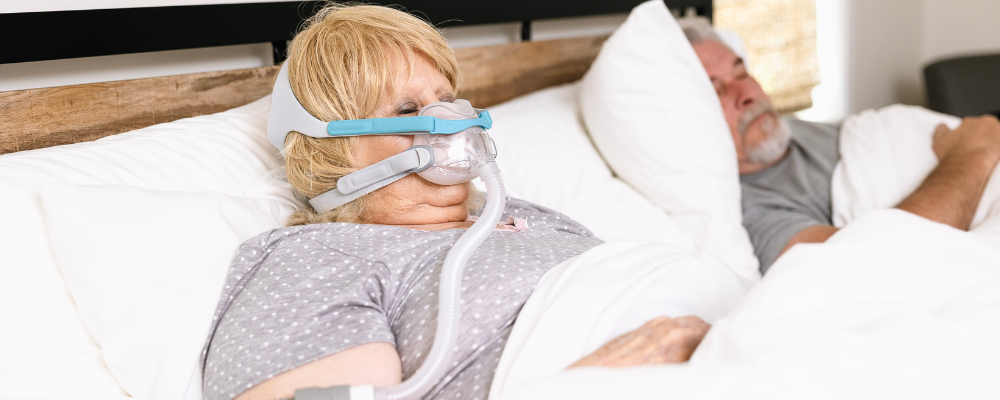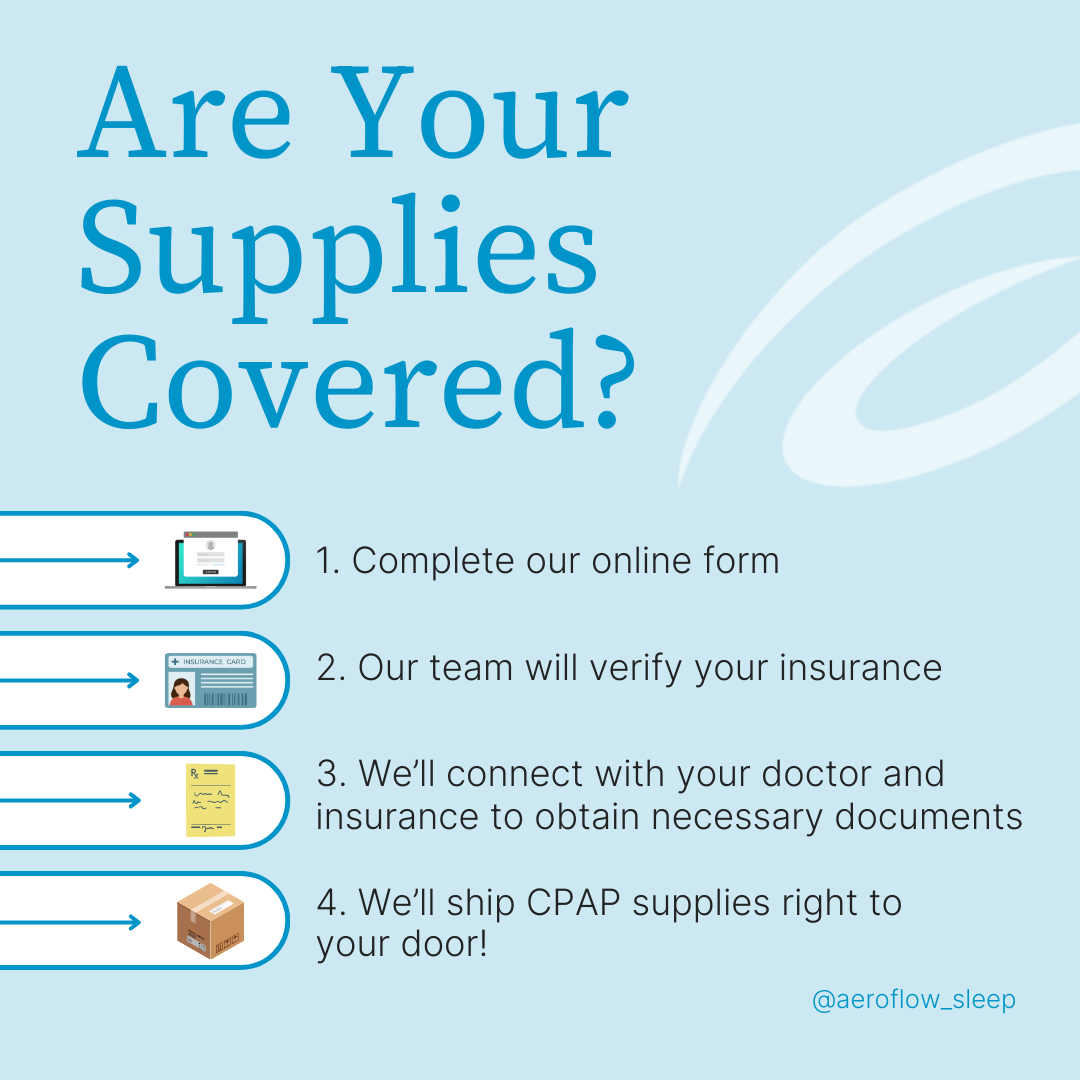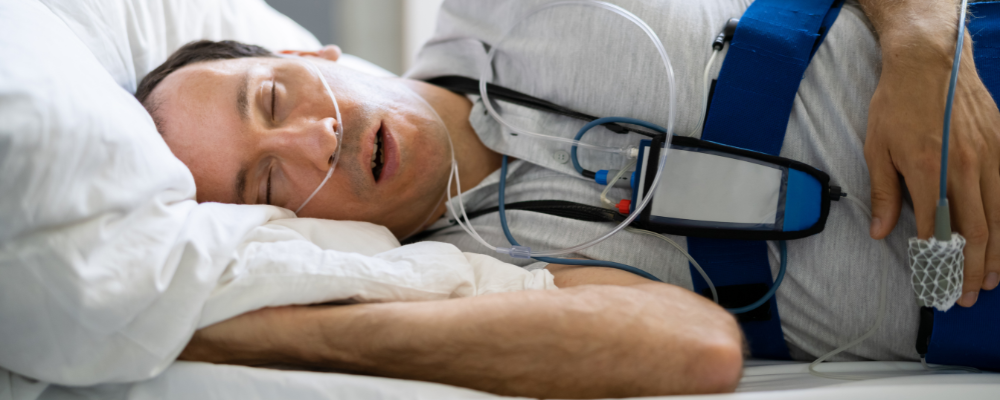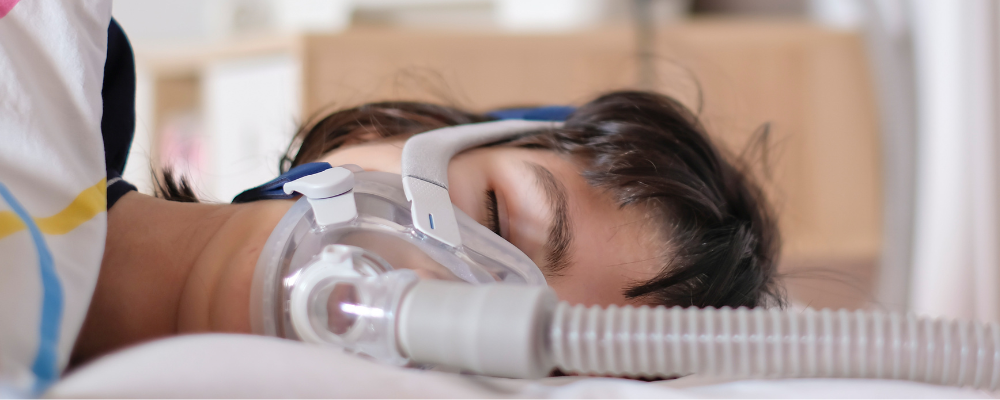If you are a family member, friend, or partner supporting a loved one with sleep apnea, you might be unsure about what, specifically, you can do to help. Here, on behalf of Aeroflow Sleep, I’m breaking down some practical advice for anyone trying to support a loved one with sleep apnea, using 3 easy tricks.
Know The Symptoms Of OSA
Awareness of obstructive sleep apnea (OSA) symptoms, testing, and treatment options remains low. Educate yourself about sleep apnea before you commit to these tricks, and you’ll be better placed to help your loved one. If you notice any of the following symptoms in your partner, family member, or friend, encourage them to learn more and ask their doctor about sleep testing and/or a referral to a board-certified sleep specialist:
- Observed pauses in breathing during sleep
- Waking up gasping for air
- Excessive daytime sleepiness
- Snoring
- Morning headaches
- Frequent nighttime bathroom trips
- Cognitive issues
1. How To Help Your Loved One Get A Diagnosis
I deliberately used the word “encourage” in the previous section. There is a lot of resistance around getting a test for sleep apnea, and reasons for this include denial and feelings of shame. Demanding that your partner take a sleep test, being passive aggressive, or pointing out long term health outcomes of untreated sleep apnea usually don’t have the desired outcome. However, if you take time to learn about home testing and the telehealth options available to your partner, that could go a long way to overcoming objections to an in-lab sleep study.
A diagnosis is important, because most treatment options will remain unavailable to the patient without it, especially those covered by insurance. You also want to ensure the right diagnosis is made. I have obstructive sleep apnea (OSA,) but there are three types of sleep apnea. Central sleep apnea (CSA) and mixed sleep apnea exist too, and which one you have can decide which PAP machine you need: APAP, BiPAP, or CPAP. Plus, every person’s pressure settings are different. All of this and more is determined with a sleep study.
Ease the process for your partner by scheduling appointments, checking medical insurance benefits, and offering to help with childcare or other commitments that might stop them from having a sleep study or attending a clinical setup. After all, open communication and encouragement are your best tools, because you ultimately can’t make an adult get tested for a medical condition if they are refusing. Know that you are not alone in this struggle.
2. How To Help Your Loved One Accept Their Diagnosis
When I was first diagnosed with OSA, I felt a lot of relief at having a diagnosis and figuring out what had been causing so many troublesome symptoms. At the same time, I felt some grief, because my life with this diagnosis looked different from what I had expected. Sometimes, the best thing to do to support a loved one with a new diagnosis is to ask them how they feel and be there to listen.
Some of the things my husband told me around the time of my diagnosis that really helped:
- “I love you no matter what.”
- “I want you to be healthy, well rested, and around for a long time!”
- “It might be tough to get used to CPAP, but I want to support you.”
- “I will support you, because I know it’s the right thing for your health.”
If your loved one is not resonating with the things you say but feels encouraged by talking with others, don’t take it personally. There’s a knowledgeable, caring CPAP community out there, in-person and online. I, myself, host a weekly podcast called Sleep Apnea Stories, and on that journey, I have had the privilege of meeting several wonderful people who treat or are diagnosed with sleep apnea. They have become a big piece of my own support circle. Do some research to find the same for your loved one.
3. How To Help Your Loved One Adapt To CPAP Therapy
Getting used to CPAP therapy is the hardest part for many sleep apnea patients, and most of that work will need to be their own. However, you can take some of the burden off by making CPAP therapy feel like self-care. Offer to do the dishes so they can take a nap using their machine. Put on your favorite TV show and have them wear the CPAP mask throughout the episode. It’s small things like this that will help your loved one adapt quickly.
Sleep apnea can affect your mutual, intimate relationships too though. In many cases, a bed partner’s sleep will improve due to the reduced snoring. Not to mention, the patient who got treatment will have fewer nighttime wakings. If this is your experience, be sure to highlight these positives so your bed partner can know their decision to get a diagnosis and treatment is bettering both your lives.
Alternatively, for partners in a sexual relationship, initially adapting to one person now wearing a CPAP mask to bed can cause negative tension. Try not to make light of the situation as this can be hurtful; you are not “sleeping with Darth Vader.” Listening to their concerns is important and offering reassurances can go a long way. Remind them they are beautiful and that the sleep apnea doesn’t define them.
Some practical ways you can offer to support a loved one using CPAP:
- Ask if it would help them for you to sleep in a different room for a short period. This can give your partner the space they need to experiment with different CPAP masks and accessories when they first get their device.
- Volunteer to regularly clean CPAP parts; like the humidifier chamber, hose, and mask cushions. Each should be cleaned daily using mild soap and water.
- Buy a bottle of distilled water whenever you go to the grocery store. This is what’s used in the CPAP’s humidifier chamber.
- Familiarize yourself with the schedule for replacing CPAP supplies. Then, set reminders, or better yet, help your loved one join Aeroflow Sleep; they deliver replacement automatically according to your health insurance coverage.
- Schedule follow-up appointments with your loved one’s Sleep Specialist. Finally, to go the extra mile, also offer transport or childcare so they can attend.
BONUS: Ask “What Would Support Look Like From Me?”
My husband, Jason, is very committed to offering support, but sometimes he just doesn’t know what to do. For many years, he would tackle supporting me the same way he dealt with work: problem-solving. As a patient adapting to CPAP, it’s not so much that I wanted a solution to my problem, I just wanted him to listen and give me a hug. If you are in a situation where you want to help your loved one but you aren’t sure how to help, this section is for you.
A few years ago, I was reading a blog aloud to my husband, and he suddenly exclaimed, “That’s it!” He looked delighted! In the blog post, Dr. Brene Brown explained offering support to a loved one when you don’t know what to say. She suggested handling the situation by saying: “I’m grateful that you’re sharing this with me. What does support look like? I can listen and be with you, I can help problem-solve, or whatever else you need. You tell me.”
This simple phrase—what would support look like from me—has changed everything for my husband and me. Now that I’m used to my CPAP therapy and don’t have a lot of frustrations for him to support me anymore, I have found it applies to every other area of our relationship.


Whatever your relationship with your loved one, know that your support can make all the difference as CPAP users adjust to their diagnosis and begin treatment. My husband was there for me with supportive, encouraging words as I began CPAP therapy. Later in my journey, he supported me in practical ways; like picking up our kids so I could keep my appointment with my sleep specialist or navigating insurance coverage when our plan changed. Remember to be mindful, and if all else fails, ask: “What would support look like from me?”
If navigating insurance is difficult for you both, fall back on Aeroflow Sleep. Known for their ability to negotiate coverage for your CPAP, they are a durable medical equipment (DME) supplier that manages all of the communication with your doctors, health insurance providers, and obtains the necessary paperwork to place your orders. It takes 5-7 minutes to sign up for their services and check to see if your insurance is in-network with Aeroflow Sleep. Click the link below, and with a sleep apnea diagnosis, join their own supportive community.
References
Hollister, Stacy. “The Practice of Story Stewardship.” Brené Brown, 10 Oct. 2023, brenebrown.com/articles/2021/12/05/the-practice-of-story-stewardship/.











